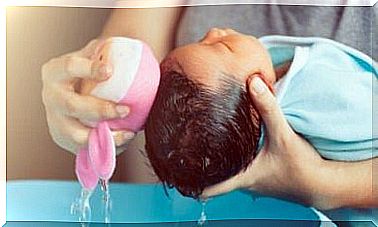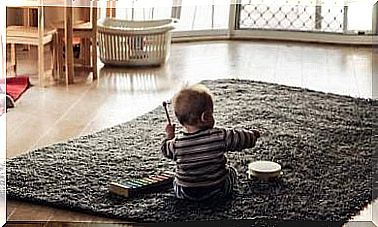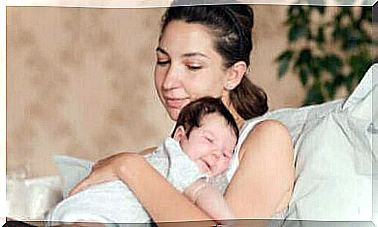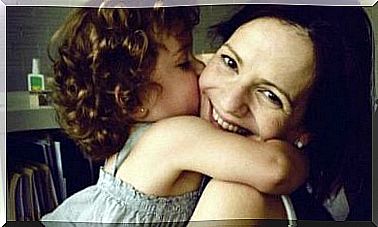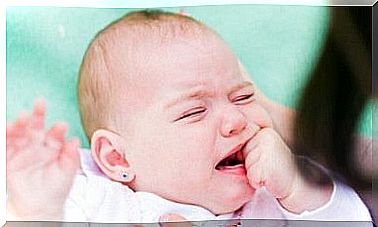Children’s Brain Development And 5 Principles You Should Know
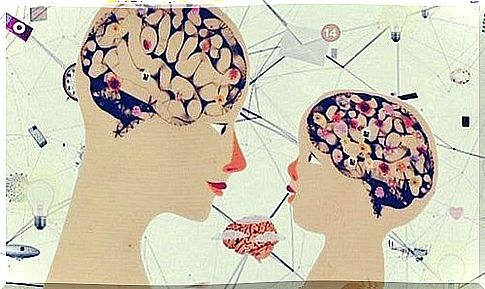
Knowing the process and phases behind children’s brain development is without a doubt one of the best tools we have available so we can help our children grow and develop in a healthy way. Read on in today’s article to learn more about children’s brain development .
We must not forget that the psychological and emotional maturation of young children also depends on aspects that are about much more than nutrition and the daily care that we provide along with infinite love.
Let’s face it: not all of us are gurus in neuroscience in childhood, and not a day goes by without our doubts in this area. We often think: are we doing it right? Should we start early stimulation with our babies?
These questions are quite normal, and for this reason we suggest that you learn a little more about children’s brain development through the 5 principles we discuss below.
We can assure you that there is nothing as fascinating as diving into the perfect and sophisticated organ that is the brain. In childhood, it has an amazing plasticity and potential.
As parents, we have the ability to promote children’s brain development so we can make the little ones much happier.
1. 50% of intelligence is determined by genes
Many parents want to have wise children. This is often because we associate intelligence with personal success, without really knowing that there are other factors that are more fundamental to success, such as happiness.
- All this leads us to a series of reflections: our baby comes with a number of characteristics / traits. One of these traits is intelligence, which is determined 50% by genes. Another is personality such as introversion / extroversion.
- However, these characteristics do not 100% determine how your baby will be in the future. The way you raise him, the way he grows up, and his learning opportunities will determine the other half.
Therefore, do not forget an important aspect: emotional intelligence.
2. Children’s brain development takes place “from the inside out”
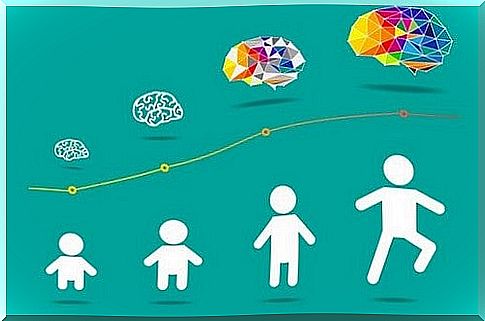
What do we mean when we say that children’s brain development happens “from the inside out”?
- The basic architecture of the brain develops through a continuous process that starts at birth and continues into adulthood.
- But as Maria Montessori said, there are few phases that are as important as brain development that occur between the ages of 0 and 6. But there is something else we would like to point out: the most important phase takes place from the age of 0 to 3 years.
- It is during this period that the brain experiences huge changes. A growth that goes from the inner part of the brain to the outer part.
- The inner structure is connected to the emotional world. Later, with rapid growth, the compounds become refined and specialized to become more efficient.
- Thus, the final stages of children’s brain development are located in the cerebral cortex, where the most refined process takes place, which is decision making, analysis, concentration and more.
3. Stress affects children’s brain development
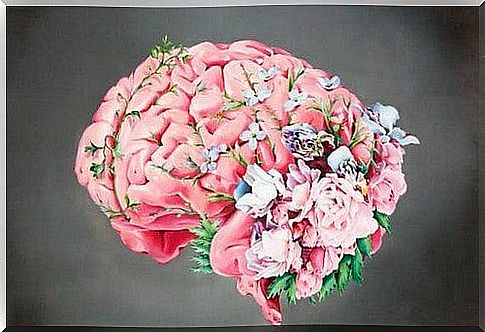
Neurologists warn us about something that mothers and fathers no doubt already know: continuous stress throughout early childhood, whether due to poverty, abuse, lack of attachment or even due to maternal depression, has a serious impact on children’s brain development.
It is actually known that children who have suffered some form of trauma have a much smaller hippocampus. This brain structure is connected to the memory and the emotional world.
The 3rd year – the magical year
But how can we take advantage of this phase? Here are some basic things to keep in mind:
- Developing the senses: your child needs to interact with the environment through touch by walking around barefoot, exploring the world’s colors and sounds, feeling different textures, etc.
- Development of language skills: read aloud, help your child learn songs, etc.
- Development of the motor skills: get your child to practice his fine motor skills associated with the hands, especially hand-eye coordination whenever you can. Also, try to encourage free movement so that your child can practice walking and moving around safely.
- Development of the emotional and social coefficient: the age of three is the age that is best suited to work on the emotional intelligence as well as important aspects such as empathy or recognition of emotions.
5. Love is the key to children’s brain development
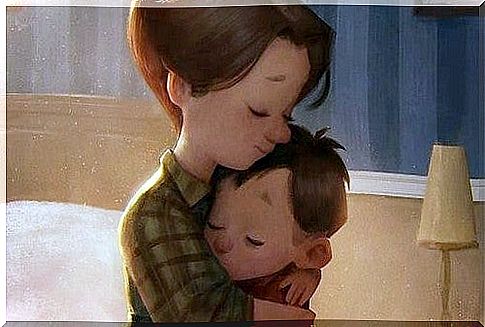
Love is a motor that makes the world turn, and the seed that makes our children grow by feeling protected, valued, nurtured, and so on.
Love and secure attachment, for example, facilitate the optimal development of the hippocampus.
In conclusion, we are more than convinced that without being a recognized specialist in pediatric neurology, you can immediately apply these recommendations with your children.
As mothers and fathers, we often know instinctively what is best for our children…

